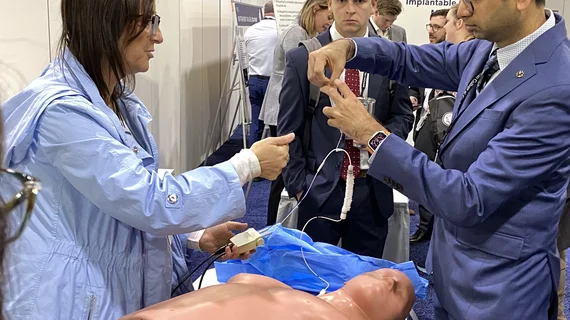ACC in-person attendance surpasses pre-COVID numbers for first time
In-person attendance at U.S. cardiology conferences is finally returning to where it was before the COVID-19 pandemic. In fact, attendance is starting to surpass those pre-COVID years. The latest example of that trend is the fact that more attendees were present for ACC.24, the annual conference of the American College of Cardiology (ACC), than were there in 2019.
ACC reports it had 17,367 total attendance at ACC.24. This is up from by 523 attendees over 2023 and 122 more than ACC had in 2019.
"We were thrilled with the meeting and the attendance with a 500-attendee increase," ACC President Cathie Biga, RN, told Cardiovascular Business. "No matter what time I walked through the expo floor, I had to walk around people because there were so many."
The breakdown of ACC 2024 attendees was as follows:
• 12,756 total professional registrants
• 11,424 in-person professionals
• 1,332 virtual professionals
• 4,611 vendor attendees
A virtual meeting element was added in 2020 because of COVID-19, and it reached a record of 38,000 attendees on the platform. But as COVID wained, so did interest in virtual attendance. Biga said it is not dead, however, allowing those who cannot be there in person to still participate.
"Virtual attendees were higher than expected, and 1,300 people is not insignificant," she explained
Total attendance at previous ACC meetings:
• 2024: 17,367
• 2023: 16,841
• 2022: 13,000
• 2021: Zero in-person, 17,500 virtual
• 2020: Zero in-person, 38,006 virtual
• 2019: 17,245
The number of professional attendees actually dropped by nearly 100 in 2024 from 2023, but the numbers increased overall thanks to additional vendor attendees this year.
ACC had registration numbers in excess of 18,000 just a couple years prior to 2019. In 2016, the ACC meeting had 18,769 attendees.

